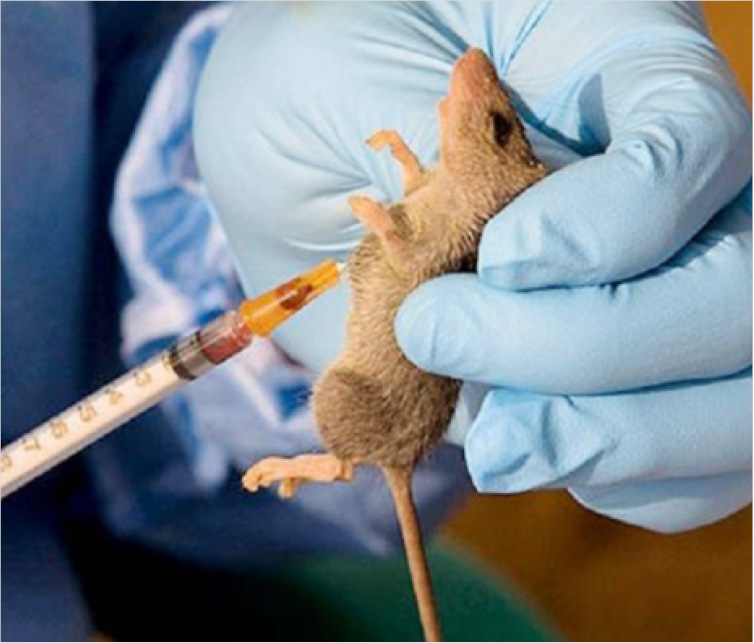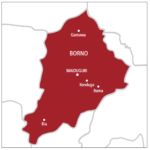- Eliminate rats from your homes — Experts
By Ojoma Akor (Abuja), Umar Muhammed (Lafia) & Usman A. Bello (Benin)
Mariam (45) lost her mother and nephew to Lassa fever five years ago. They were infected by a neighbour who also died from the disease.
She is concerned that the disease has continued to ravage the country, and particularly that there is no vaccine for it.
Lassa fever is a haemorrhagic viral illness caused by contact with food or household items contaminated with rodent urine or faeces. The virus is carried in multimammate rats (the common soft-furred African rat which female has two rows of breasts). The rat normally lives in the bush and visits nearby homes for food; which they contaminate.
The disease was first detected in Nigeria in 1969, and it comes with bleeding, and death in severe cases. It has an incubation period of six to 21 days.
The symptoms are fever, weakness, muscle and chest pains, sore throat, nausea, vomiting, diarrhoea, cough and abdominal pain. In most severe cases, individuals may bleed from the mouth, nose, eyes or other parts of the body.
The disease has also continued to take a toll on health workers. Medical experts say there are preventive measures for the public to protect themselves despite the unavailability of a vaccine.
Four people, among them two doctors, have been killed by the disease in Nasarawa State and the Federal Capital Territory (FCT) this year.
Daily Trust reports that the victims in Nasarawa were a mother and her baby.
Dr Oga Esa-Ochapa and Dr Victor Nwatu-Mbanefor developed symptoms shortly after performing surgery on the Nasarawa woman, travelled to Abuja where their families reside. They developed symptoms of the disease, were on treatment before they died.
The Chief Medical Director (CMD) of Dalhatu Araf Specialist Hospital (DASH), Lafia, Dr Hassan Ikrama, said the hospital had commenced contact tracing of people within the hospital to prevent the spread of the disease.
While expressing concern over non-availability of testing centres in the state, he said effort was being made by the state government to establish testing centres, not only for Lassa fever, but also yellow fever and other related diseases across the state.
According to data from the Nigeria Centre for Disease Control (NCDC), Nigeria recorded 222 confirmed cases and two deaths from Lassa fever in the first week of this year.
The NCDC, in the situation report, said in total, for 2022, 10 states have recorded at least one confirmed case each across 20 local government areas.
The states with very high prevalence are Edo, Ondo and Bauchi.
The Director of Public Health, Edo Edo State Ministry of Health, Dr Bruce Osa, said the state had recorded 40 cases and lost four persons to Lassa fever in the current outbreak, adding that the state was ready to contain this year’s outbreak.
He explained that Edo had been following the strategies it had adopted in the past two years which had been working.
He said the state used a multi-sectoral approach in which all institutions such as the Ministries of Health, environment, agriculture, as well as other stakeholders involved in tracking Lassa fever strategised to mitigate the disease.
He explained that, “We have activated our emergency operation centre saddled with the responsibility of coordinating the measures against the outbreak.
“One of the strategies is vector control; which means controlling the rats carrying the virus from having contact with human beings.
“We also sensitise pharmacy and chemist shops, as well as private hospitals, on high index of suspicious cases so that when they attend to persons with fever that refuse to subside after three days they would refer such for Lassa fever test.”
Nigeria is one of the countries that have been experiencing consistent seasonal and sporadic outbreaks of Lassa fever in West Africa, and the outbreaks have resulted in the loss of lives among the general public and health workers, especially in health facilities where there is low index of suspicion of Lassa fever, coupled with non-adherence to standard precaution in the clinical management of patients.
According to the NCDC, early diagnosis of the disease when experiencing symptoms increases the chances of survival.
NCDC said Lassa fever might also spread between humans through direct contact with blood, urine, faeces, or other bodily secretions of a person infected with Lassa fever, and that laboratory transmission could also occur.
It advised Nigerians to, “Eliminate rats in homes and communities using rat traps, block all holes in your house to prevent entry of rats.”
The organisation added that hand hygiene was one of the most effective ways to reduce the spread of infectious diseases like Lassa fever, and advised: “Encourage the practice of regular hand hygiene among family and friends to stay healthy.”
Medical experts have also advised individuals, health workers, families and communities to improve on their personal hygiene, and also ensure that their houses were free from rats, and properly cover all foods and drinks.
Dr Ogugua Osi-Ogbu, a consultant physician, said it was necessary for people to keep their environments clean, protect their food, eating utensils, water or anything they ingested through their mouths.
She said people should not leave water open, but keep it safe in a container with tight cover that would be difficult for rats to enter.
She further said, “The cover of your pot or water must be ‘rat proof’; the rat must not be able to easily displace it. The same thing goes for food. Washing our utensils is very necessary; cups, plates, cutlery must be thoroughly washed before usage. You don’t just pick them and use for the sake that it has earlier been washed, not minding if rats had perched on them.
“When rats have played on them and you don’t wash before use, your food will be contaminated.”
The physician noted that not every fever was malaria, and advised that when people had fever that had been treated and was not going away, they must visit the hospital because there could be other reasons; one of which was Lassa fever.
She said, “The good thing about it is that it is treatable if we start treatment on time. People do not have to die by it if treatment starts early. The incubation period goes between six to 21 days, and study has shown that if we start treatment between six days of infection people do not actually need to die.”




